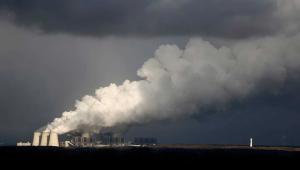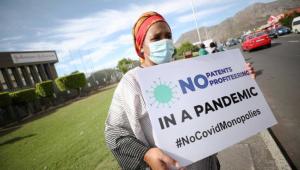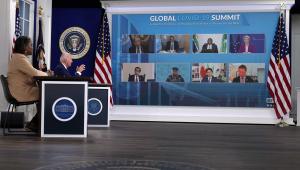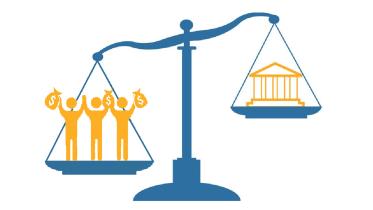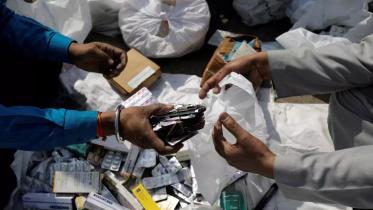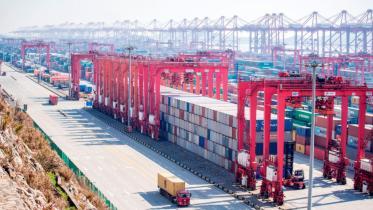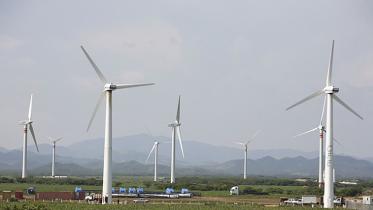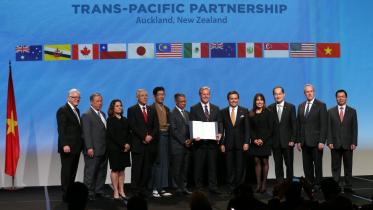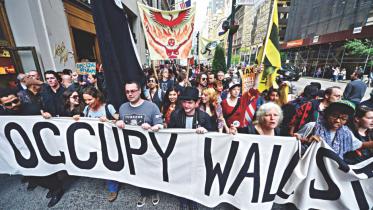World Bank’s ‘Mobilising Finance for Development’ not financing development
The World Bank leadership must urgently abandon its “Maximising Finance for Development” (MFD) hoax. Instead, it should resume its traditional multilateral development bank role of mobilising funds at minimal cost to finance developing countries.
27 August 2020, 18:00 PM
ISDS enables making more money from losses
With the Covid-19 contagion from late 2019 spreading internationally this year, governments have responded, often in desperation. Meanwhile, predatory international law firms are encouraging multimillion-dollar investor-state dispute settlement (ISDS) lawsuits citing Covid-19 containment, relief and recovery measures.
23 August 2020, 18:00 PM
Financialisation: Tackling the other virus
The 1971 Bretton Woods (BW) system collapse opened the way for financial globalisation and transnational financialisation. Before the 1980s, most economies had similar shares of trade and financial openness, but cross-border financial transactions have been increasingly unrelated to trade since then.
13 July 2020, 18:00 PM
West First policies expose myths
As the epicentre of the Covid-19 pandemic shifts from China to the developed West, all too many rich countries are acting selfishly, invoking the “national interest”, by banning exports of vital medical supplies.
1 April 2020, 18:00 PM
Intellectual property raises costs of living
Many medicines and medical tests are unaffordable to most of humanity owing to the ability of typically transnational pharmaceutical giants to abuse their monopoly powers, enforced by intellectual property laws, to set prices to maximise profits over the long term.
13 February 2020, 18:00 PM
Inequality and its many discontents
Much recent unrest, such as the “yellow-vest” protests in France and the US “Abolish the Super-Rich” campaign, is not against inequality per se, but reflects perceptions of changing inequalities. Most citizens resent inequalities when it is not only unacceptably high, but also rising.
4 December 2019, 18:00 PM
Trade liberalisation for development?
The International Monetary Fund (IMF), the World Bank and the World Trade Organisation (WTO), all dominated by rich countries, have long promoted trade liberalisation as a “win-win” solution for “all people—rich and poor—and all countries—developed and developing countries”, arguing that “the gains are large enough to enable compensation to be provided to the losers”.
8 November 2019, 18:00 PM
Finance Global Green New Deal for Sustainable Development
the United Nations (UN) Sustainable Development Goals (SDGs) can only be achieved by 2030 with the political will to change international economic rules and mobilise resources needed for a massive public sector-led investment push to reinvigorate world
30 September 2019, 18:00 PM
Privatisation increases corruption
International financial institutions (IFIs) have typically imposed wide-ranging policy reforms—called “conditionalities”—in exchange for country governments to secure access to financial assistance.
30 July 2019, 18:00 PM
Neoliberal reforms strengthening monopoly power and abuses
Over the last four decades, growing concentration of market power in the hands of oligopolies, if not monopolies, has been greatly enabled by ostensibly neoliberal reforms, worsening wealth concentration and gross inequalities in the world.
9 May 2019, 18:00 PM
Has privatisation benefitted the public?
In most cases of privatisation, some outcomes benefit some, which serves to legitimise the change. Nevertheless, overall net welfare improvements are the exception, not the rule.
4 April 2019, 18:00 PM
Agribusiness is the problem, not the solution
For two centuries, all too many discussions about hunger and resource scarcity have been haunted by the ghost of the parson Thomas Robert Malthus. Malthus warned that rising populations would exhaust resources, especially those needed for food production. Exponential population growth would outstrip food output.
25 February 2019, 18:00 PM
Rethinking free trade agreements in uncertain times
After US President Donald Trump withdrew from Obama's Trans-Pacific Partnership (TPP), involving 12 countries on the Pacific rim, on his first day in office, Japan, Australia and their closest allies proposed and promoted the Comprehensive and Progressive Trans-Pacific Partnership (CPTPP) to draw the US back into the region to counter China's fast-growing power and influence.
9 January 2019, 18:00 PM
Inequality undermines democracy
Economic inequality—involving both income and wealth concentration—has risen in nearly all world regions since the 1980s.
22 November 2018, 18:00 PM
Developing countries losing out to digital giants
A new United Nations report warns that the potential benefits to developing countries of digital technologies are likely to be lost to a small number of successful first movers who have established digital monopolies.
20 October 2018, 18:00 PM
Trade war due to deeper malaise
The world economy remains tepid and unstable a decade after the 2008 financial crisis, while growing trade conflicts are symptoms of deeper economic malaise, according to a new United Nations publication.
8 October 2018, 18:00 PM
Another global financial crisis for developing countries?
George Soros, Bill Gates and other pundits have been predicting another financial crisis. In their recent book, Revolution Required: The Ticking Bombs of the G7 Model, Peter Dittus and Herve Hamoun, former senior officials of the Bank of International Settlements, warned of "ticking time bombs" in the global financial system waiting to explode, mainly due to the policies of major developed countries.
20 September 2018, 18:00 PM
Model trade deal con
In early 2016, the Trans-Pacific Partnership (TPP) Agreement—involving twelve countries on the Pacific Ocean rim, including the USA—was signed in New Zealand. Right after his inauguration in January 2017, newly elected US President Donald Trump withdrew from the TPP, effectively killing the agreement as its terms require the participation of both the US and Japan.
2 March 2018, 18:00 PM
Intellectual property regime undermines equity, progress
Over the last few decades, people in the developing world have been rejecting the intellectual property (IP) regime as it has been increasingly imposed on them following the establishment of the World Trade Organization (WTO) including its trade-related intellectual property rights (TRIPs) regime. IP rights (IPRs) have been further enforced through ostensible free trade agreements (FTAs) and investment treaties
19 February 2018, 18:00 PM
Another setback for WTO
As feared, the Eleventh Ministerial Conference (MC11) of the World Trade Organization (WTO) in Buenos Aires, Argentina, on December 10-13, 2017 ended in failure. It failed to even produce the customary ministerial declaration reiterating the centrality of the global trading system and the importance of trade as a driver of development.
7 January 2018, 18:00 PM







